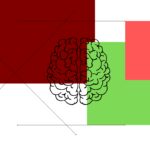What is Intellectual Disability?
Intellectual Disability, also referred to as Intellectual Developmental Disorder, is defined as having an IQ of less than 70 and deficits in adaptive behavior or everyday living abilities (such as eating, dressing, communicating, and participating in activities with others).
Individuals with intellectual disabilities struggle with complex concepts and learn slowly. Reduced cognitive capacity, or intellectual disability, results in a variation in the rate and efficiency with which an individual learns, retains, and applies new information in comparison to the general population (Shree & Shukla, 2016).
According to DSM-5, Intellectual Disability is a class of developmental disorders marked by deficits of cognitive functions that are linked to learning, adaptive behavior, and skill constraints (Carulla et al., 2011).
Intellectual Disability Signs and Symptoms
The symptoms of intellectual disability are spread across three domains of functioning for which are, conceptual domain, social domain and practical domain. Find examples of these symptoms in the following table. Note that these symptoms can vary in severity and frequency in different individuals.
| Conceptual Domain | Social Domain | Practical Domain |
| difficulties in learning academic skills | Immature in social interactions | Inability to perform daily living tasks |
| Difficulty in abstract thinking | Inaccurate perception of social cues | Need support in transportation |
| Difficulty in executive functions ( prioritizing, planning or strategizing) | Communication is immature | Support required in making health related or legal decisions |
| Poor understanding of time and money | Difficulty in regulating emotions | Sometimes require support in tasks like eating, dressing, cleaning and elimination |
| Language impairment | Social judgement is immature | Inability to develop vocational skills |
| Impairment of visuospatial skills, such as matching and sorting based on physical characteristics | Easily manipulated by others | |
| Unable to establish social boundaries |
Diagnostic Criteria of Intellectual Disability Disorder
The DSM-5 TR (APA, 2000) has outlined a specific diagnostic criteria related to Intellectual Disability.
A. Intellectual developmental disorder (intellectual disability) is a disorder with onset during the developmental period that includes both intellectual and adaptive functioning deficits in conceptual, social, and practical domains. The following three criteria must be met:
B. Deficits in intellectual functions, such as reasoning, problem solving, planning, abstract thinking, judgment, academic learning, and learning from experience, confirmed by both clinical assessment and individualized, standardized intelligence testing.
C. Deficits in adaptive functioning that result in failure to meet developmental and sociocultural standards for personal independence and social responsibility. Without ongoing support, the adaptive deficits limit functioning in one or more activities of daily life, such as communication, social participation, and independent living, across multiple environments, such as home, school, work, and community.
D. Onset of intellectual and adaptive deficits during the developmental period.
Note: The term intellectual developmental disorder is used to clarify its relationship with the WHO ICD-11 classification system, which uses the term Disorders of Intellectual Development. The equivalent term intellectual disability is placed in parentheses for continued use. The medical and research literature use both terms, while intellectual disability is the term in common use by educational and other professions, advocacy groups, and the lay public. In the United States, Public Law 111-256 (Rosa’s Law) changed all references to “mental retardation” in federal laws
to “intellectual disability.”
Specify current severity (see Table 1):
F70 Mild
F71 Moderate
F72 Severe
F73 Profound
References
American Psychiatric Association. (2016). Diagnostic and statistical manual of mental disorders. Text revision.
Carulla, L. S., Reed, G. M., Vaez-Azizi, L. M., Cooper, S. A., Leal, R. M., Bertelli, M., …&Saxena, S. (2011). Intellectual developmental disorders: towards a new name, definition and framework for “mental retardation/intellectual disability” in ICD-11. World Psychiatry, 10(3), 175. https://doi.org/10.1002/j.2051-5545.2011.tb00045.x
Shree, A., & Shukla, P. C. (2016). Intellectual Disability: Definition, classification, causes and characteristics. Learning Community-An International Journal of Educational and Social Development, 7(1), 9-20. https://doi.org/10.5958/2231-458X.2016.00002.6
I am a passionate and knowledgeable psychologist, with a Master of Philosophy (MPhil) in Psychology specializing in Counseling Psychology. Through my writing, I share my insights and thoughts on various psychiatric disorders, conduct analysis on films that touch on psychological issues, and explore other topics related to psychology, while also providing valuable information to psychology enthusiasts, students as well the general community.







































